




Having a washing machine upstairs can be a convenient option for many homeowners, as it eliminates the need to carry heavy loads of laundry up and down stairs. However, there are both pros and cons to consider when deciding whether or not to have a washing machine on an upper floor.
One of the main advantages of having a washing machine upstairs is the convenience it offers. With the machine located near the bedrooms or main living areas, you can easily toss in a load of laundry while going about your daily activities. This can save you time and effort, especially if you have a large household with frequent laundry needs.
Another benefit of having a washing machine on an upper floor is that it can help prevent potential water damage. In the event of a leak or overflow, having the machine on a lower floor could result in significant damage to the floors, walls, and belongings. By having the machine upstairs, any water leakage is more likely to be contained to the laundry room area, making it easier to clean up and minimize damage.
However, there are also some drawbacks to consider. One disadvantage is the risk of noise and vibration. Washing machines can be quite noisy, especially during the spin cycle. If the machine is located on an upper floor, the noise and vibration can be more noticeable and may disturb people in nearby rooms. This could be particularly problematic if you have young children or light sleepers in your household.
Furthermore, installing a washing machine upstairs may require additional plumbing and structural considerations. The weight of a full washing machine can put strain on the floor and may require additional reinforcement. Additionally, the plumbing and drainage systems may need to be modified or upgraded to handle the increased load and prevent any potential leaks.
In conclusion, having a washing machine upstairs has its pros and cons. While it offers convenience and can help prevent water damage, it may also cause noise and vibration issues, as well as require additional plumbing and structural considerations. Consider your specific needs and circumstances before making a decision.
Pros and Cons of Having a Washing Machine Upstairs
Pros:
- Convenience: Having a washing machine upstairs can be convenient as it eliminates the need to carry heavy laundry loads up and down the stairs. This can be especially beneficial for individuals with mobility issues or those living in multi-story houses.
- Time-saving: With a washing machine conveniently located upstairs, you can easily throw a load in while going about your daily activities or household chores. This can save you time and reduce the accumulation of dirty laundry.
- Space-saving: Installing a washing machine upstairs can help free up valuable space on the ground floor, especially if you have a small laundry room or limited floor space. It allows you to utilize upper floors more efficiently.
- No flooding risk: In case of a washing machine leak or malfunction, having it upstairs can minimize the risk of water damage to the lower floors, as the water is more contained and easier to manage.
Cons:

- Noisy: Washing machines can be noisy during operation, and having it upstairs can lead to an increased level of noise in the living areas. This can be especially bothersome during the spin cycle.
- Structural concerns: The weight of a washing machine, especially when filled with water, can put additional stress on the structure of the upper floors. This may lead to potential issues such as sagging or weakening of the floor.
- Installation challenges: Installing a washing machine upstairs may require additional plumbing work or modifications to accommodate the water supply and drainage. This can add to the overall cost and complexity of the installation process.
- Accessibility: If you have a multi-story home, having a washing machine upstairs may not be suitable for everyone, especially for individuals who have difficulty climbing stairs or elderly family members who rely on a ground-floor laundry area.
Conclusion:
Having a washing machine upstairs has its pros and cons. While it offers convenience, time-saving, and space-saving benefits, it can also be noisy, have potential structural concerns, and pose accessibility challenges. Consider your specific needs, home layout, and personal preferences before deciding on the placement of your washing machine.
Convenience and Accessibility
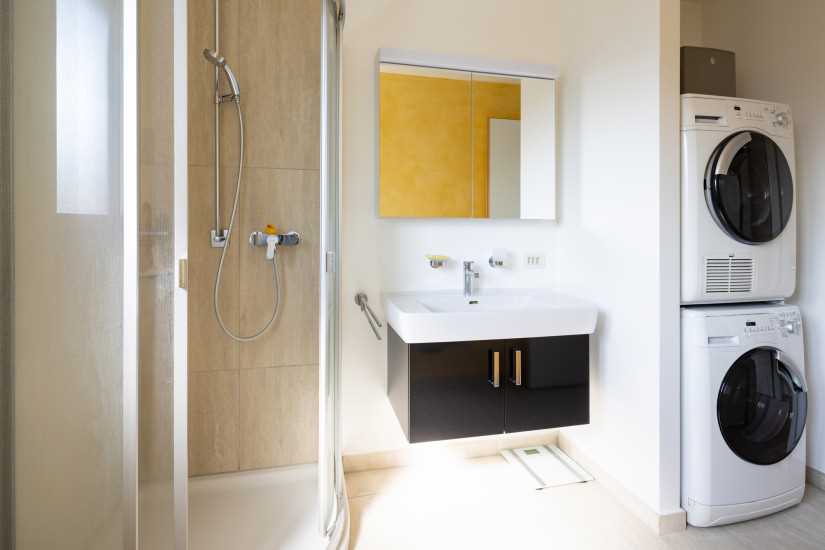
Having a washing machine upstairs can offer convenience and accessibility advantages.
Here are some of the pros:
- Easy access to laundry facilities: Having a washing machine upstairs means that you don’t have to carry your laundry up and down the stairs, which can be especially helpful for individuals with physical limitations or mobility issues. It reduces the amount of effort required to do laundry and makes the task more accessible.
- Time-saving: With a washing machine located on the same floor as your bedrooms, you can easily toss in a load of laundry while going about your daily routine. This saves time and allows you to multitask efficiently.
- Convenient for small spaces: If you have a small laundry room or limited space in your home, having a washing machine upstairs can be a practical solution. It allows you to utilize space efficiently and eliminates the need for a separate laundry area on the ground floor.
- Less noise disruption: Since most bedrooms are usually located on the upper floors, having a washing machine upstairs reduces the noise and vibration disturbances that can occur during the laundry cycle. This is particularly beneficial if you have young children or roommates who are sensitive to noise.
While there are several advantages to having a washing machine upstairs, it is important to consider the potential drawbacks as well. Make sure to weigh these factors before deciding on the placement of your laundry facilities.
Space Saving
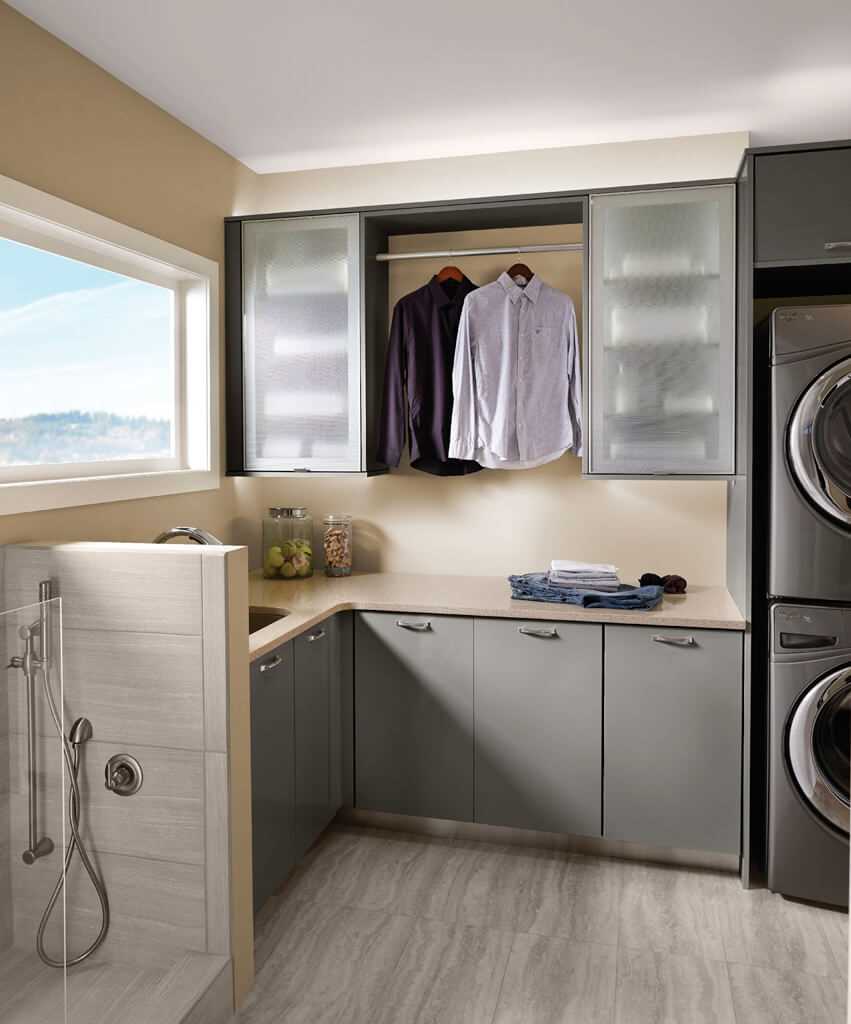
One of the advantages of having a washing machine upstairs is the potential to save space in your home. By placing the washing machine upstairs, you can free up valuable space in your laundry room or basement for other purposes.
This can be especially beneficial in smaller homes or apartments where space is limited. By utilizing the upstairs area, you can optimize the use of available space and create a more efficient laundry setup.
Additionally, having the washing machine upstairs can eliminate the need to transport heavy laundry baskets up and down the stairs, saving you time and effort. This can be particularly advantageous for individuals with mobility issues or those who prefer a more convenient laundry routine.
Furthermore, if your laundry room is located on the ground floor or in the basement, moving the washing machine upstairs can save you from having to go up and down the stairs multiple times during the laundry process.
- Space-saving advantage
- Potential for a more efficient laundry setup
- Reduced need for transporting heavy laundry baskets up and down the stairs
- Convenience for individuals with mobility issues
- Minimized need for going up and down stairs during the laundry process
Reduced Noise and Vibration
One of the advantages of having a washing machine upstairs is the reduced noise and vibration.
When a washing machine is on the ground floor, the noise and vibrations from its operation can be easily transmitted to rooms and spaces adjacent to the machine. This can be especially problematic for people living in apartment buildings or houses with thin walls, as it can disturb the peace and quiet of the entire household.
However, by having a washing machine upstairs, the noise and vibrations can be minimized. This is because the upper floors of a house or apartment building tend to have more insulation and construction materials that can absorb and dampen the machine’s vibrations and sounds.
Additionally, having a washing machine upstairs can provide a buffer zone between the laundry area and the living spaces, allowing for a more peaceful and comfortable environment in the parts of the house where people spend the most time.
Overall, reduced noise and vibration is a significant benefit of having a washing machine upstairs. It can help maintain a quieter and more peaceful living environment for the household members and minimize disturbances caused by the machine’s operation.
Plumbing and Water Damage Risks
Having a washing machine upstairs can pose certain risks when it comes to plumbing and water damage. Here are some potential issues to consider:
1. Leaks
One of the main concerns with having a washing machine upstairs is the risk of leaks. If a leak occurs due to a faulty hose, a damaged seal, or a malfunctioning valve, it can result in significant water damage to the upper floors of your home. This can lead to expensive repairs and restoration work.
2. Drainage Problems
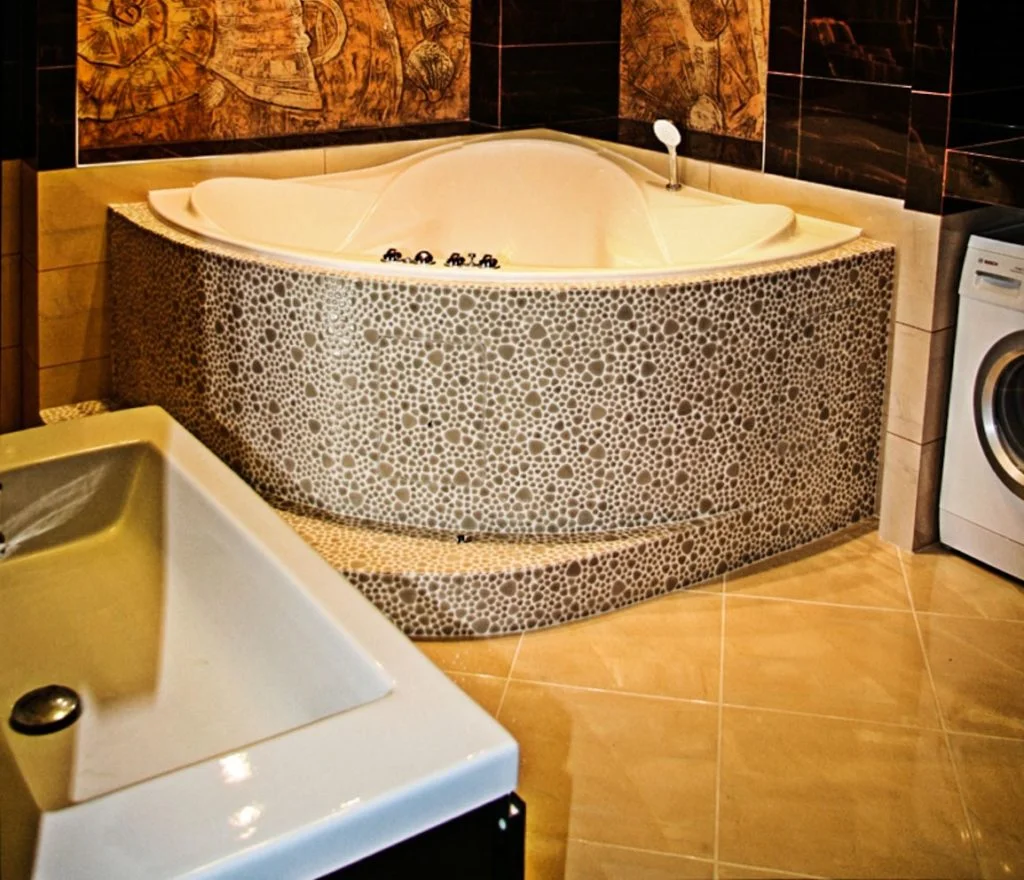
Another issue to consider is the drainage system. Washing machines require a robust drainage system to handle the amount of water being expelled during each cycle. If the drainage system is not adequate or becomes clogged, it can lead to backups and overflow, potentially damaging the floors and walls.
3. Plumbing Installation
The installation of a washing machine upstairs requires proper plumbing to ensure the machine operates correctly and avoids any leakage issues. Improper installation can result in water leaks and damage to surrounding structures. It is important to hire a professional plumber to install the washing machine and ensure the plumbing configuration is adequate for upstairs use.
4. Noise and Vibration
Upstairs washing machines can create noise and vibration, which can be disruptive to those on the lower floors. This can be especially problematic if your living spaces are close to the laundry area or if you have neighbors who are sensitive to noise. Consider using vibration pads or anti-vibration mats to minimize the noise and vibration transferred to the floor.
5. Maintenance Accessibility
Having a washing machine upstairs can make maintenance and repairs more challenging. Access to the machine and its plumbing connections may be limited, requiring additional effort and cost to address any issues that arise. It is important to factor in the accessibility aspect when considering the pros and cons of an upstairs laundry setup.
| Risks | Considerations |
|---|---|
| Leaks | Regularly check and maintain the hoses and seals to minimize the risk of leaks. |
| Drainage Problems | Ensure the drainage system is suitable for upstairs use and keep it free from clogs. |
| Plumbing Installation | Hire a professional plumber for proper installation and ensure the plumbing configuration is adequate. |
| Noise and Vibration | Use vibration pads or anti-vibration mats to minimize noise and disruption. |
| Maintenance Accessibility | Consider the potential challenges and additional costs of accessing the machine and its connections for maintenance or repairs. |
Potential Structural Issues
While having a washing machine upstairs can offer convenience, it can also pose potential structural issues. These issues should be considered before deciding to install a washing machine on an upper level of a home.
1. Floor Load Capacity
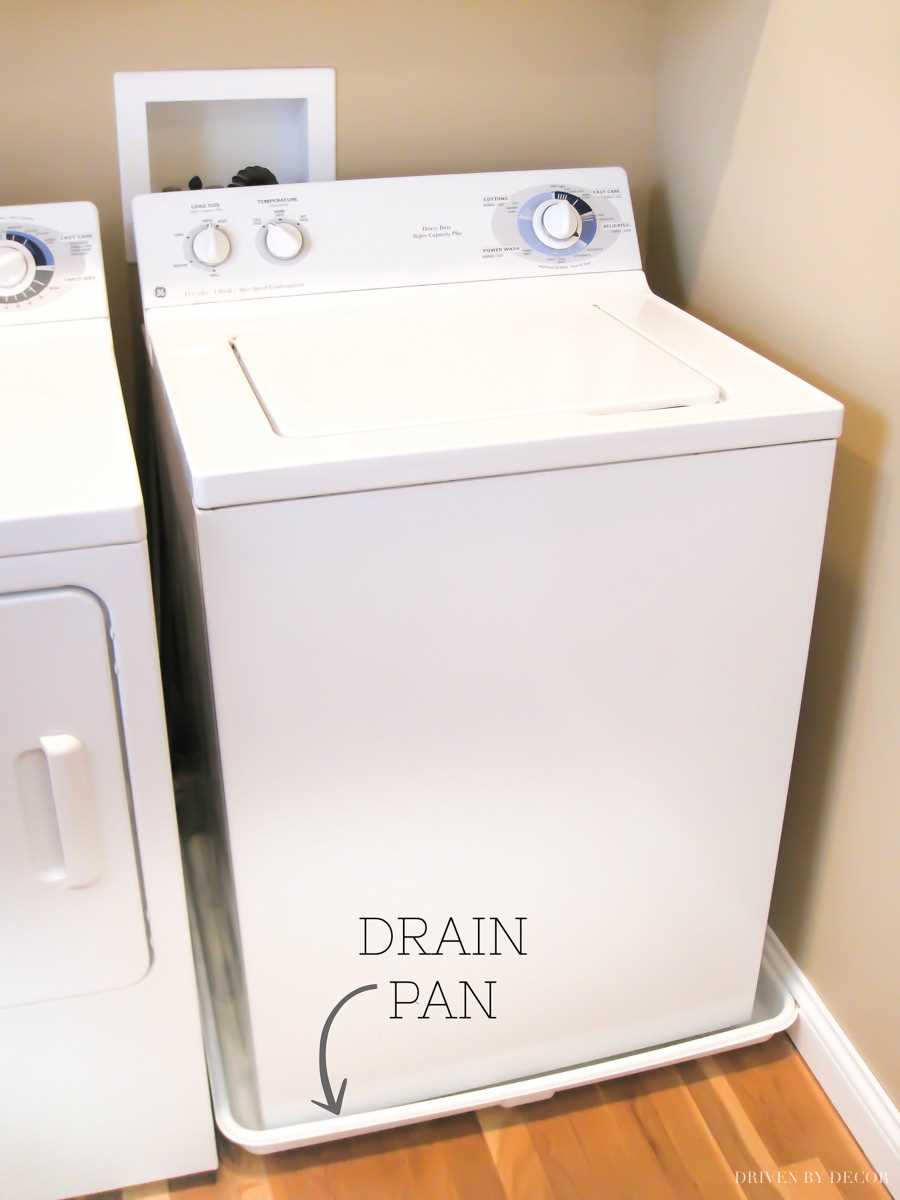
One of the main concerns when placing a washing machine upstairs is whether the floor can handle the additional load. Washing machines can be heavy, especially when they are filled with water and clothes. Some older homes might have floors that are not designed to support heavy loads. Exceeding the floor load capacity can result in sagging, cracks, or even collapsing floors.
2. Water Damage
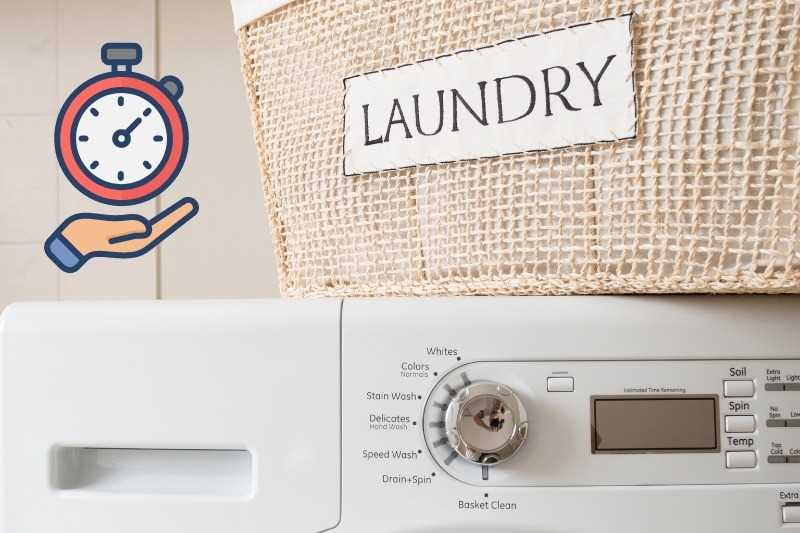
Water leaks are common with washing machines, and when they occur on an upper floor, they can cause significant damage to the structure of the house. If the washing machine malfunctions or a hose bursts, water can soak into the floor, walls, and even seep down to the lower levels. This can lead to expensive repairs and can also compromise the structural integrity of the house.
3. Vibration
Washing machines can generate significant vibrations, especially during the spin cycle. When placed on an upper floor, these vibrations can be transmitted throughout the entire structure of the house. This can result in noise disturbance for occupants and can even cause cracks on walls or ceilings over time if the vibrations are strong enough.
4. Drainage Problems
Proper drainage is crucial for washing machines to function correctly. If the drainage system on an upper floor is not properly designed or equipped to handle the water flow, it can lead to clogs or backups. This can cause water to overflow onto the floor, potentially damaging the structure and requiring costly repairs.
5. Accessibility for Maintenance
Having a washing machine upstairs can make it more challenging to access and maintain. If the machine needs repairs or maintenance, it may require moving it up or downstairs, which can be inconvenient and potentially cause damage to the stairs or walls. Additionally, if any plumbing issues arise, accessing the plumbing connections can be more difficult, leading to increased repair costs.
| Issue | Concern |
|---|---|
| Floor Load Capacity | Possible sagging or collapsing floors |
| Water Damage | Costly repairs and compromised structural integrity |
| Vibration | Noise disturbance and potential cracks |
| Drainage Problems | Clogs, backups, and potential water damage |
| Accessibility for Maintenance | Inconvenience and potential damage during repairs |
FAQ
What are the advantages of having a washing machine upstairs?
Having a washing machine upstairs can save you time and effort by eliminating the need to carry heavy laundry baskets up and down the stairs. It also allows for convenient access to the washing machine, making it easier to start and monitor laundry cycles.
Are there any disadvantages to having a washing machine upstairs?
One potential disadvantage is the risk of water damage if the machine leaks or overflows. Having a washing machine upstairs also means that you may need to install additional plumbing and drainage systems, which can be costly. Additionally, the noise and vibrations of the machine could be more noticeable on the upper floors.
Is it safe to have a washing machine upstairs?
While having a washing machine upstairs can be safe, it is important to take precautions to prevent water damage. Make sure the machine is properly installed and maintained, and consider using water sensors or shut-off valves to detect leaks. It is also a good idea to regularly inspect the hoses and connections for any signs of wear or damage.
How can I prevent water damage from a washing machine upstairs?
To prevent water damage, you can install a drain pan underneath the washing machine to catch any potential leaks or overflows. Consider using water sensors or shut-off valves that can automatically turn off the water supply if a leak is detected. Regularly inspect the machine and its connections for any signs of damage, and address them promptly.
What should I consider before installing a washing machine upstairs?
Before installing a washing machine upstairs, consider the weight capacity of the floor and make sure it can support the additional load. You may need to reinforce the floor or consult a structural engineer for guidance. Evaluate the space available and ensure there is proper ventilation and access for installation, maintenance, and repairs. Lastly, consider the noise and vibrations, as this could impact the comfort of nearby rooms.












